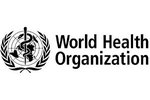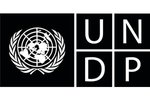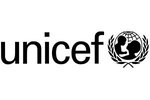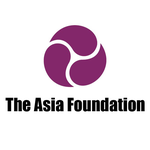Where are the women in global health leadership?
‘The health system can reduce discrimination against women by giving women equal opportunities to assume leadership roles.’
Gender has a fundamental bearing on power and privilege in society.
It’s a key determinant of everyone’s health and wellbeing; women often have lower ability to access health services than men, and inequalities exist even at the household level. That includes who makes health decisions, how a family allocates their resources at home, and societal expectations of how someone should manage their health conditions based on their gender.
Gender also acts as a gateway to revealing and understanding opportunity, expectations and achievements along a number of social divisions. They include class, geography, ethnicity, age, and (dis)ability.
In the global health workforce, women make up roughly 70%. That includes doctors, nurses, public health professionals, administrators, scientists, health communicators, epidemiologists, and researchers. Yet they hold only around 25% of senior roles.
We’re committed to raising the voices of women leaders in public and global health, so here’s an interview we did with an important public health leader in Timor-Leste.
Let’s meet Dr. Odete da Silva Viegas, a dermatologist who also serves as the Director General of Health Services Delivery in Timor-Leste. She’s also part of the task force for COVID-19 in Timor-Leste, and was recently appointed as a spokesperson for the COVID-19 Integrated Center for Crisis Management.
Why did you choose to become a doctor?
I chose to become a medical doctor because I wanted to serve people, to better understand their needs, respond to those needs, and provide services that respect the rights and dignity of my patients.
In order to promote gender equality, we must dismantle the social construction of gender that puts men and women in boxes. We need to embrace that men and women are equal and therefore must have the same rights and opportunities.
Equality cannot be achieved and violence against women and children will remain pervasive when society continues to hold on to the harmful stereotypes and expectations of women and men. This can be done through socialisation at schools, involving all systems and there must be political will to transform the policy into practice, particularly in the health sector.
The health system plays a role in advancing gender equality. What can we do?
We can promote the concept of leadership to women and end prejudice against women in leadership. It is time to acknowledge that women like men can be as courageous, brave, have ambition and have the capacity to make sound decisions.
It is also important to value traits that women bring into an organisation such as sensibility, flexibility, and intuition. Women are also great team players and have the capability to face adversity. They possess the skills to lead teams and organisations to achieve desired outcomes. A concrete example is the Department of Health Service Delivery, which I lead.
What kind of barriers exist for women professionals in public health?
We need to respect and acknowledge women as professionals. Too often, negative stereotypes and prejudices against women in the workplace become enabling factors for sexual abuse against women to occur. That includes abuse of women who are in leadership roles. When women are in leadership positions, their attire and physical appearance are often viewed in relation to their position.
The health system can reduce discrimination against women by giving women equal opportunities to assume leadership roles through selection based on merit. This will enable women to thrive and enhance their capacity.
Within the Directorate General of Health Services Delivery, there are several women who hold key leadership roles already. As a medical doctor who serves as leader of this directorate, I also encourage other women working in the ministry to apply for key positions, such as director and head of department.
Moving forward
There’s a long way forward to gender equality. We’re seeing a number of initiatives take place to achieve it, including campaigns for equal pay, women’s rights in the workforce, and access to leadership positions.
Gender equality benefits everyone, and has an overwhelmingly positive effect on businesses and organisations. The inclusion of women in leadership has been proven to improve innovation, creativity, and productivity. Nationally, closing the gender gap can increase a country’s GDP by up to 11%.
It’s everyone’s responsibility to pursue. According to Dr. Rui de Araujo, medical doctor and former Prime Minister of Timor-Leste, men have an important role to play in promoting gender equality in our community.
“Men must be engaged in efforts to end gender-based discrimination,” he said.
“Educating people to dismantle traditional gender norms can help us to live in a more equal society.”
We’re hoping to achieve more of that with our health programs in Timor-Leste, which also aim to address inequalities within the household. And we look forward to continuing to work with women leaders in the health system, who pioneer the change we all want to see.
. . . . . .
Want to know more about what we do? Visit our website at www.catalpa.io, and be sure to follow us on Twitter, Facebook and LinkedIn for updates.
And if you have any thoughts on our work, we’re keen to read your comments 👇🏽














